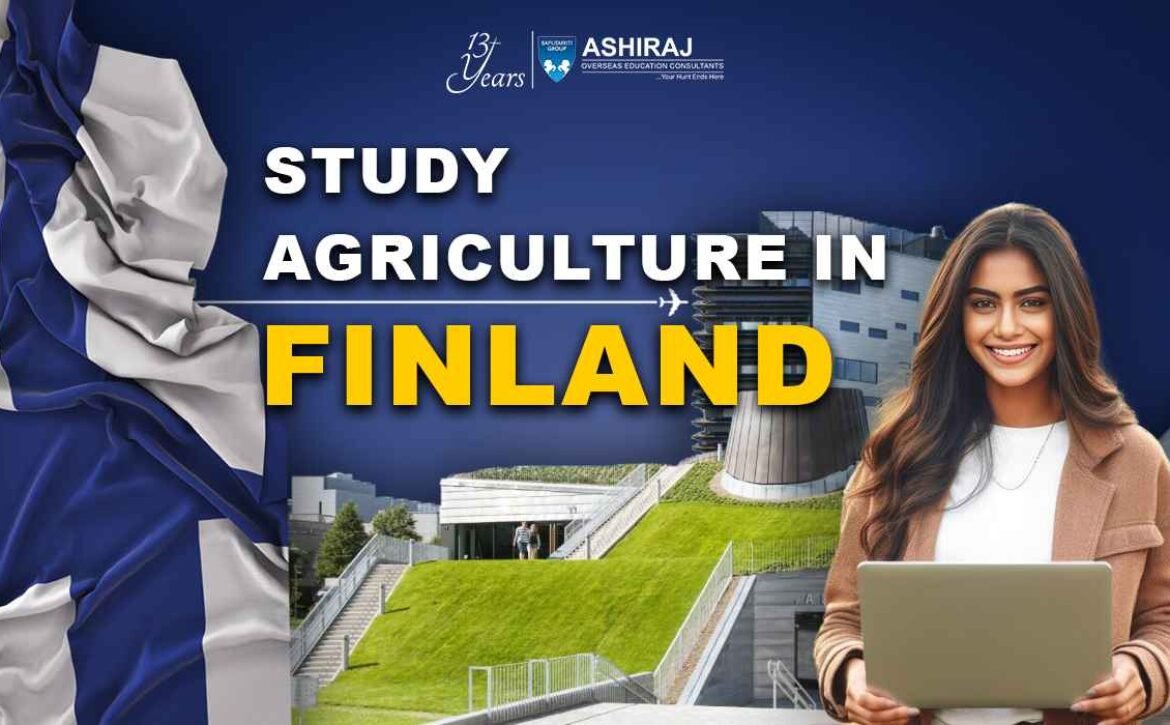
Agriculture in Finland
Agriculture in Finland is a pivotal sector despite its challenges due to its northern location and climatic conditions. Finland’s agriculture focuses on dairy and cereal production, supplemented by forestry and horticulture. The sector benefits from advanced technology and government support, enabling sustainable practices despite the seasonal limitations. The agricultural landscape of Finland integrates traditional methods with modern innovations, ensuring both productivity and environmental responsibility.
Agriculture in Finland faces unique challenges such as short growing seasons and cold temperatures, which necessitate specialized farming techniques and crop varieties. Nevertheless, the sector thrives due to robust research and development, fostering resilient crops and efficient farming methods. Government policies prioritize sustainable agriculture, promoting biodiversity and organic farming practices. The Finnish agricultural sector not only supports domestic food production but also contributes significantly to rural employment and national economic stability.
Why to Study Agriculture in Finland?
- Cutting-edge Research Opportunities: Finland offers access to advanced agricultural research facilities and institutes, enhancing learning and innovation.
- Sustainable Practices: Emphasis on sustainable agriculture aligns with global trends, providing valuable insights and practical knowledge in eco-friendly farming techniques.
- Varied Climatic Conditions: Studying in Finland exposes students to diverse agricultural environments, from Arctic conditions to temperate zones, fostering adaptability and comprehensive learning experiences.
- Internationally Recognized Degrees: Finnish universities provide internationally accredited agriculture programs, ensuring graduates are competitive on a global scale.
- Supportive Learning Environment: Small class sizes and personalized teaching methods promote effective learning and student engagement in agricultural studies.
- Career Opportunities: Graduates benefit from a strong agricultural industry in Finland, with opportunities in research, farming, agribusiness, and environmental management.
- Cultural Exchange: Studying in Finland offers a cultural immersion experience, enriching perspectives and global networks in agriculture.
- Government Support: Finland’s government invests in agriculture, creating a stable economic environment and ample resources for research and development.
Studying agriculture in Finland equips students with not only theoretical knowledge but also practical skills in sustainable farming practices, preparing them for rewarding careers in a crucial sector of the global economy.
Top Universities to Study Agriculture in Finland
University Name | QS World University Ranking 2023 | Type of University | Average Annual Fees | Programs Offered |
University of Helsinki | 101-150 | Public | €0-€20,000 | Agriculture, Environmental Sciences, Forestry, Biological Sciences |
University of Turku | 201-250 | Public | €0-€15,000 | Agricultural Sciences, Biology, Environmental Science, Forestry |
Aalto University | 301-350 | Public | €0-€18,000 | Agricultural Engineering, Environmental Technology, Biology |
University of Eastern Finland | 301-350 | Public | €0-€15,000 | Forestry, Environmental Management, Agriculture |
University of Oulu | 351-400 | Public | €0-€16,000 | Agriculture and Forestry, Environmental Engineering, Biology |
Studying agriculture in Finland offers students access to top-tier universities renowned for their research excellence and diverse program offerings. The University of Helsinki, ranked between 101-150 in the QS World University Rankings 2023, leads with comprehensive programs in agriculture, environmental sciences, and forestry. The University of Turku follows closely, offering agricultural sciences and related disciplines at an affordable annual fee ranging from €0 to €15,000. Aalto University and the University of Eastern Finland also feature prominently, providing specialized courses in agricultural engineering, environmental management, and forestry, tailored to meet industry demands. Rounding out the top five, the University of Oulu offers programs in agriculture, forestry, and environmental engineering, ensuring a well-rounded education supported by Finland’s commitment to sustainable agricultural practices and cutting-edge research.
Course Curriculum for Agriculture in Finland
- Core Agricultural Sciences: The curriculum emphasizes foundational courses in agriculture, covering topics such as crop science, soil management, and agricultural economics.
- Environmental Sustainability: Focus on sustainable practices is integral, with modules on agroecology, environmental impact assessment, and organic farming techniques.
- Technology Integration: Courses include agricultural technology and innovation, integrating modern farming methods like precision agriculture and biotechnology applications.
- Field-based Learning: Practical training is emphasized through fieldwork and internships, providing hands-on experience in diverse Finnish agricultural landscapes.
- Interdisciplinary Approach: Cross-disciplinary courses explore intersections with biology, forestry, and environmental sciences, enhancing holistic understanding.
- Research Opportunities: Students engage in research projects addressing current agricultural challenges, supported by faculty expertise and advanced research facilities.
- Global Perspectives: Modules on international agricultural policies and markets offer insights into global agriculture trends and opportunities.
- Professional Development: Curriculum includes modules on business management, entrepreneurship in agriculture, and rural development strategies.
Studying agriculture in Finland offers a well-rounded education, blending theoretical knowledge with practical skills and research opportunities, preparing graduates for diverse careers in sustainable agriculture and related fields.
Eligibility Criteria & Admission Requirements for MS in Agriculture in Finland
- Language Proficiency: Applicants must demonstrate proficiency in English with a minimum score of 6.5 in IELTS or 90 in TOEFL iBT.
- Academic Qualifications: A bachelor’s degree in agriculture, environmental sciences, biology, or related fields is typically required, with a GPA of at least 3.0 on a 4.0 scale.
- Standardized Tests: Some universities may require GRE or GMAT scores. A competitive score would be around 300 in GRE (combined verbal and quantitative) or 600 in GMAT.
- Passport & Student Visa: A valid passport and a student visa are mandatory for international students intending to study agriculture in Finland. Visa requirements vary, so students should check with the Finnish embassy or consulate in their country.
- Academic Certificates: Transcripts and certificates from previous educational institutions, demonstrating the completion of relevant coursework, are required.
- Work Experience: While not always mandatory, relevant work experience in agriculture or related fields can strengthen an application, demonstrating practical knowledge and commitment to the field.
Scores Required:
Test | Minimum Score |
IELTS | 6.5 |
TOEFL iBT | 90 |
GRE | 300 (combined verbal and quantitative) |
GMAT | 600 |
These criteria ensure that applicants to agriculture programs in Finland are well-prepared academically and linguistically to succeed in their studies, contributing to a diverse and knowledgeable student body.
Documents Required for Studying Agriculture in Finland
- Passport: A valid passport with a minimum validity of six months beyond the intended period of stay in Finland.
- Two Letters of Recommendation (LOR): Academic or professional references that attest to the applicant’s skills, character, and potential for success in agricultural studies.
- Statement of Purpose (SOP): A personal statement outlining the applicant’s academic background, career goals, and reasons for choosing agriculture in Finland.
- Curriculum Vitae (CV): A detailed resume highlighting educational qualifications, work experience, internships, and any relevant achievements.
- Official High School Transcripts and Certificates: Certified copies of transcripts and certificates from all educational institutions attended, demonstrating academic performance and completion of high school education.
- Work Experience Certificate: If applicable, a certificate verifying relevant work experience in agriculture or related fields, showcasing practical knowledge and skills.
- Proof of Financial Resources: Evidence demonstrating the ability to finance tuition fees, living expenses, and other costs during the study period in Finland. This could include bank statements, sponsorship letters, or scholarship award letters.
Preparing these documents meticulously ensures that the application process for studying agriculture in Finland proceeds smoothly, meeting the requirements of universities and immigration authorities.
Admission Process for Agriculture in Finland
- Research Programs: Explore universities offering agriculture programs in Finland. Check their rankings, curriculum, and admission requirements.
- Check Eligibility: Ensure you meet the eligibility criteria, including academic qualifications, language proficiency (IELTS/TOEFL scores), and standardized tests (GRE/GMAT if required).
- Prepare Documents: Gather necessary documents such as passport, academic transcripts, letters of recommendation (LOR), statement of purpose (SOP), curriculum vitae (CV), and proof of financial resources.
- Submit Application: Complete the online application form on the university’s website or through the Finnish national application portal. Pay attention to deadlines.
- Pay Application Fees: Some universities may require an application fee, so be prepared to pay it as per their instructions.
- Interview (if required): Some programs may require an interview to assess your suitability and motivation for studying agriculture in Finland.
- Receive Admission Decision: Wait for the university to review your application. Once accepted, you will receive an admission offer or letter.
- Acceptance and Visa: Accept the offer and proceed to apply for a student visa. Prepare additional documents such as health insurance and accommodation proof.
- Arrival and Orientation: Upon receiving your visa, plan your travel to Finland. Attend orientation sessions provided by the university to familiarize yourself with campus and academic life.
Following these steps diligently ensures a smooth admission process to study agriculture in Finland, setting the stage for a rewarding academic journey in a country known for its innovative agricultural practices.
“Education is the most powerful weapon which you can use to change the world.”
Nelson Mandela
Cost of Agriculture Course in Finland
- Tuition Fees: Public universities in Finland typically charge no tuition fees for EU/EEA students. For non-EU/EEA students, fees range from €8,000 to €18,000 per year, depending on the university and program.
- Living Expenses: Estimated at approximately €700 to €1,200 per month, covering accommodation, food, transportation, and other personal expenses.
- Accommodation: Options include student residences, shared apartments, or private rentals, costing between €250 to €700 per month.
- Health Insurance: Mandatory for all students in Finland, with costs around €50 to €80 per month, depending on the coverage.
- Books and Supplies: Additional expenses for books, materials, and fieldwork equipment, approximately €600 to €800 per year.
- Other Costs: Application fees (if applicable), residence permit fees (for non-EU/EEA students), and occasional travel expenses.
Studying agriculture in Finland offers a cost-effective option for EU/EEA students due to minimal tuition fees, while non-EU/EEA students should budget for higher expenses. Planning and budgeting accordingly ensure a comfortable and financially sustainable experience while pursuing agricultural studies in Finland.
Scholarships for Agriculture Courses in Finland
Scholarship Name | Amount | Eligibility Criteria | Application Deadline |
University of Helsinki Scholarships | Varies | Available for international students pursuing master’s or doctoral studies in agriculture or related fields. | Varies (typically around January-March) |
Aalto University Scholarships | Varies | Merit-based scholarships for students in agriculture programs, with a focus on academic excellence and research potential. | Varies (check university website) |
University of Turku Scholarships | Varies | Scholarships for international students studying agriculture, based on academic achievement and financial need. | Varies (usually in spring or early summer) |
Finnish Government Scholarships | Full tuition + Living expenses | For doctoral studies in Finnish universities, including agriculture disciplines, awarded based on academic merit and research proposal. | Annually (check official sources for updates) |
Erasmus+ Scholarships | Varies | Offers mobility grants for EU/EEA students studying agriculture in Finland, supporting exchange programs and internships. | Varies (check with participating institutions) |
Scholarships for agriculture in Finland cater to both domestic and international students, offering financial support to pursue higher education in this field. Application deadlines vary by scholarship provider, so prospective students should carefully review eligibility criteria and submit their applications well in advance of deadlines to maximize their chances of securing funding.
Career Opportunities After Agriculture in Finland
Job Profile | Average Salary (EUR/year) | Description |
Agricultural Engineer | €35,000 – €50,000 | Designs and develops agricultural machinery, systems, and processes. |
Environmental Specialist | €40,000 – €55,000 | Manages environmental impact assessments and sustainable agriculture practices. |
Farm Manager | €30,000 – €45,000 | Oversees daily operations on farms, including crop production and livestock care. |
Forestry Manager | €35,000 – €50,000 | Manages forest resources, including planning and conservation efforts. |
Food Scientist | €40,000 – €60,000 | Researches and develops new food products and processes for agricultural industries. |
In Finland, agriculture graduates have diverse career options, ranging from agricultural engineering and farm management to environmental stewardship and food science. These roles offer competitive salaries, reflecting Finland’s commitment to sustainable agricultural practices and technological innovation in the sector. Prospective students interested in pursuing careers in agriculture in Finland can explore these opportunities, leveraging their academic background and practical skills to contribute to the country’s thriving agricultural industry.
Frequently Asked Questions About Agriculture in Finland
Finland’s main agricultural products include dairy, cereals (especially barley and oats), potatoes, and various berries.
Finland’s agricultural season is short due to its northern climate, typically running from May to September.
Yes, Finland has universities offering specialized programs in agriculture, environmental sciences, and forestry.
Agriculture graduates in Finland have opportunities in agricultural engineering, environmental management, farm management, and food science industries.
Yes, Finland emphasizes sustainable agriculture with practices like organic farming, biodiversity conservation, and efficient resource use.
Yes, several universities and organizations offer scholarships for international students pursuing agriculture studies in Finland.
International students are often required to demonstrate proficiency in English through tests like IELTS or TOEFL.
Yes, international students can work part-time up to 25 hours per week during academic semesters and full-time during holidays.
The cost of living varies, but students should budget approximately €700 to €1,200 per month for accommodation, food, and other expenses.
International students must apply for a student visa through the Finnish embassy or consulate in their home country, providing necessary documents including proof of admission and financial resources.




